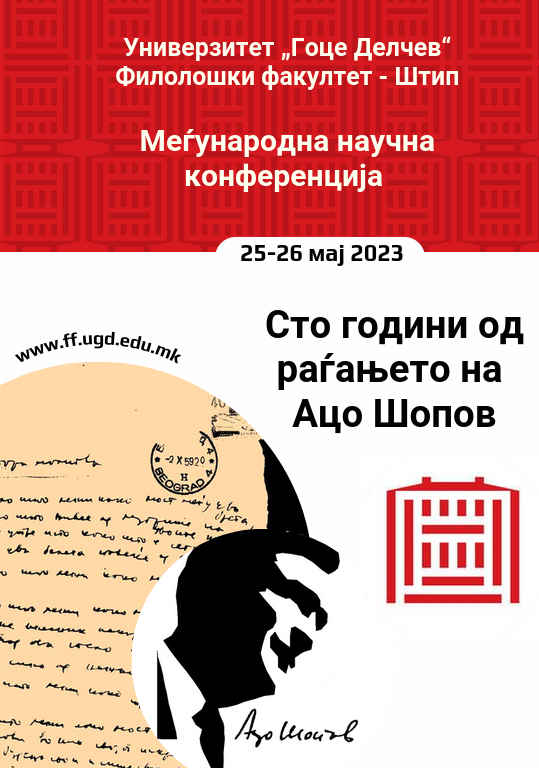НЕБИДНИНАТА КАКО МОТИВ ЗА СЕМАНТИЧКО-ЕТИМОЛОШКА АНАЛИЗА НА ПОЕТСКИОТ ЈАЗИК НА АЦО ШОПОВ / SEMANTIC ETYMOLOGICAL ANALYSIS OF THE “NOT-BEING“ MOTIF OF ACO ŠOPOV`S POETRY
Abstract
This paper aims to do the semantic-etymological analysis of the poetic
language of Aco Šopov, especially taking the term “not-being” into account which is the
name of the poem collection. The starting point of this analysis are the works of Prokopiev
“On the not-being of Šopov”, Šeleva’s “From Eros to Eidos” and “The myth phantasms and
symbols in the not-being of Aco Šopov. Namely, in our opinion, these papers cover the
aspects that lead to the semantic-etymological analysis of the poetic language of Aco
Šopov in the collection “Not-being”. The term “not-being” etymologically can be adopted
as neologism, occasionalism or as widely understood - linguistic innovation. The statistical
analysis of the collection “Not-being” (the word group of nouns) shows that the noun
“body” is used the most and is on the first place (being used 32 times without the titles),
then the noun “blood” (25 times) and on the third place is the noun “stone” which is used
21 times followed by the noun “word” (17 times) and “country” which is mentioned 14
times. However, hapax legomena i.e. the words which are used only once are the nouns
“womb”, “tree” and “grave”. This linguistic statistics leads to a philosophical reflection
that the aforementioned literary critics (aestheticians) somehow intuitively with all their
encyclopedic knowledge (including linguistic knowledge), unequivocally, precisely dissect
the structure of the poetry collection and atomize the key term “not-being”, which is also
confirmed through our linguistic semantic-etymological analysis.

